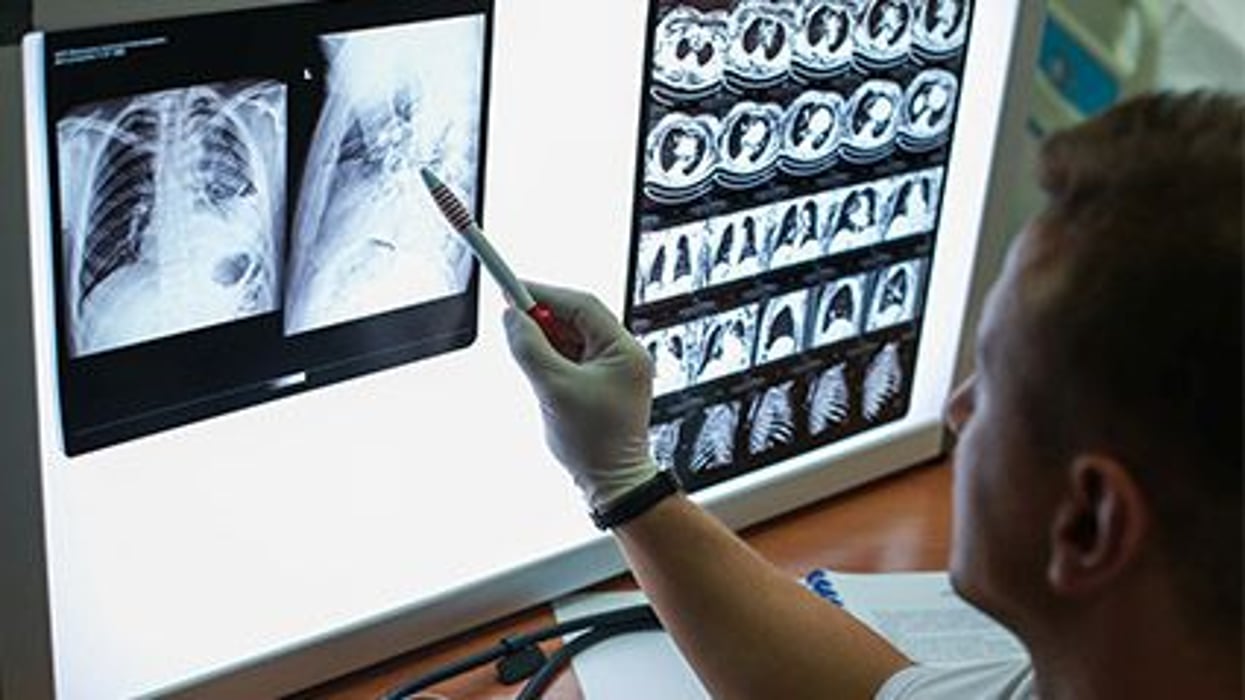Chest Scans for Respiratory Ills Can Also Spot Heart Trouble

MONDAY, March 13, 2023 (HealthDay News) -- Ordering special heart scans before a major surgery to gauge risks may be unnecessary, a new study suggests.
Researchers found that surgeons can instead estimate patients’ risk of heart attack or death by reviewing existing images of the chest captured months earlier during screening for lung issues, such as pneumonia or cancer.
This could avoid surgery delays and increased costs, while reducing radiation exposure.
For the study, a team from NYU Grossman School of Medicine in New York City analyzed existing computed tomography (CT) scans to estimate levels of hardened fatty plaque deposits in the heart’s three largest blood vessels.
They found that patients with greater plaque buildup had higher odds for developing serious health issues following surgery.
“Our findings show that imaging already on hand can help physicians make practical decisions about surgical risks, even though such tests may not be as precise as those designed for this purpose,” lead author and cardiology fellow Dr. Daniel Choi said in a school news release.
His team used data from health records of 2,650 patients ages 45 and older. Each had had surgery that was unrelated to the heart between January 2016 and September 2020 at NYU Langone hospitals.
This data included the type of procedure as well as instances of death and heart attack.
All patients in the study had also undergone a general CT scan of their chests no more than a year before their surgeries. Researchers identified those who had died or had a heart attack while hospitalized for surgery.
Then, four members of the team who had no formal training in CT interpretation completed a 90-minute training session to learn how to estimate coronary calcium severity from the imaging.
The study used a scoring system with a 3-point scale for plaque buildup in each of the three major coronary arteries. These would be added together to range from 0 to 9.
Patients with scores from 0 to 2 had a 4% or lower risk of major adverse cardiac events (MACE), according to the study. Those with scores from 3 to 5 had an 8% risk. Patients with scores from 6 to 9 had a 13% risk.
“Our coronary calcium assessment is easy to use and requires minimal training, and so offers a cost-effective tool that can be implemented in any medical practice,” said co-senior author Dr. Robert Donnino, a cardiologist and assistant professor of medicine and radiology.
The calcium estimates were consistent among the physicians, suggesting that the rating system was reliable, researchers said.
“While evaluating cardiac risks before surgery is helpful, it will be important to find new strategies to prevent adverse events after the procedure and improve survival,” added co-senior author Dr. Nathaniel Smilowitz, a cardiologist and assistant professor of medicine.
Study findings were presented last week at a meeting of the American College of Cardiology, in Los Angeles. Findings presented at medical meetings are considered preliminary until published in a peer-reviewed journal.
More information
The European Society of Cardiology has more on heart risks after surgery.
SOURCE: NYU Grossman School of Medicine, news release, March 2, 2023
Related Posts
How Do You Get Hepatitis C? Here’s What to Know
WEDNESDAY, June 14, 2023 (HealthDay News) -- Hepatitis C is a viral infection of...
Racial/Ethnic Gaps in Outcomes Larger for Infants Conceived by ART
WEDNESDAY, Oct. 19, 2022 (HealthDay News) -- Women who conceive by medically...
Nighttime Hot Spring Bathing May Decrease Prevalence of HTN in Older Adults
THURSDAY, Jan. 5, 2023 (HealthDay News) -- Regular nighttime hot spring bathing...
Homicide a Leading Cause of Death for Pregnant U.S. Women
THURSDAY, Oct. 20, 2022 (HealthDay News) -- It's not high blood pressure,...
